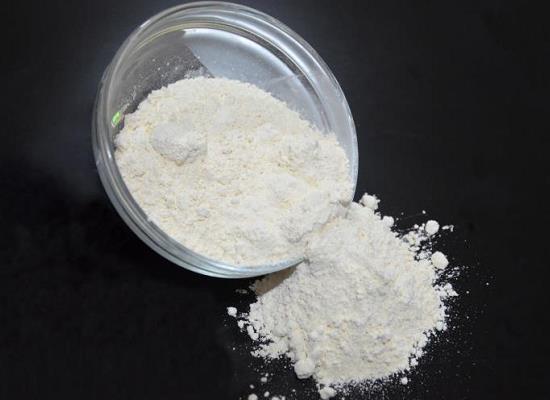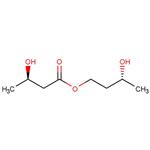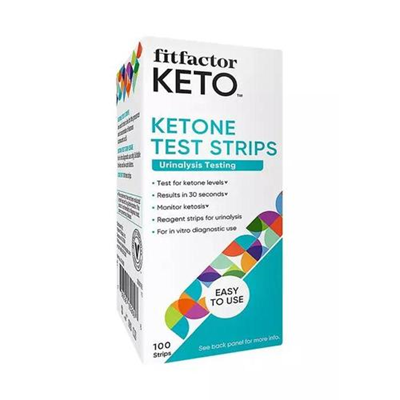Ketone Ester: Bioconversion, Effects on Metabolism and Transcription
General Description
Introducing ketone ester into the diet has been shown to significantly decrease blood glucose and insulin levels, thus enhancing insulin sensitivity. This metabolic effect is attributed to the increased provision of acetyl-CoA for energy production in the Krebs cycle, replicating the metabolic effects of insulin. Ketone ester also impact transcription factors, reducing the synthesis of cholesterol and fatty acids by influencing SREBP and ChREBP. Additionally, ketone ester plays a crucial role in delivering ketone bodies to the bloodstream and have been demonstrated to achieve significant hyperketonemia levels, offering potential benefits for metabolic health.

Figure 1. Ketone Ester
Effects on Metabolism
Introducing ketone ester into the diet has been shown to have significant effects on blood glucose levels and insulin sensitivity. When ketone body esters are fed to rats, there is a notable decrease in blood glucose levels and a simultaneous reduction in blood insulin levels. This demonstrates that inducing ketosis through the consumption of ketone ester can effectively enhance insulin sensitivity in the body. In studies where 30% of dietary calories from starch were replaced with ketone ester, there was a substantial decrease in blood glucose levels by approximately 50% and a significant decrease in insulin levels as well. Additionally, plasma leptin levels also showed a decrease when ketone ester were equi-calorically substituted for starch. The metabolism of ketone bodies has been found to play a crucial role in increasing insulin sensitivity, as evidenced by previous research conducted on working perfused rat hearts. By enhancing the activity of the pyruvate dehydrogenase multienzyme complex, ketone ester contribute to the increased provision of acetyl-CoA for energy production in the Krebs cycle. Furthermore, the addition of either insulin or ketone bodies to the working perfused heart significantly increased acetyl-CoA levels, with ketone bodies showing a 15-fold increase, demonstrating that ketone body metabolism can replicate the metabolic effects of insulin. The reduction of insulin levels through ketone body metabolism not only impacts metabolism but also influences transcription processes within the body, showcasing the multifaceted effects of ketone ester on insulin sensitivity and metabolic regulation. 1
Effects on Transcription
Ketone Ester, a type of ketone body supplement, has significant effects on transcription factors that regulate the synthesis of fatty acids and cholesterol in the body. One key transcription factor affected by Ketone Ester is SREBP (sterol regulatory binding protein). Insulin typically increases SREBP levels in the liver, leading to enhanced transcription of genes responsible for cholesterol and fatty acid synthesis. By decreasing insulin levels, Ketone Ester can lower the expression of SREBP, potentially reducing the synthesis of these lipids. Additionally, Ketone Ester impacts another transcription factor called ChREBP (carbohydrate response element binding protein). Elevated blood glucose normally triggers ChREBP to enter the nucleus and increase the transcription of enzymes involved in fatty acid synthesis. However, elevated blood ketones from Ketone Ester consumption prevent ChREBP from entering the nucleus by activating specific protein interactions. This inhibition of ChREBP's nuclear entry hinders the transcription of lipogenic enzymes, which are crucial for fatty acid synthesis. In summary, Ketone Ester influences transcription factors like SREBP and ChREBP, leading to potential reductions in the synthesis of cholesterol and fatty acids in the body. By modulating these transcriptional processes, Ketone Ester may offer benefits for metabolic health and lipid metabolism. 1
Bioconversion
Ketone ester play a crucial role in the delivery of ketone bodies (KBs) to the bloodstream through the gastrointestinal route. When KBs are converted to Ketone ester, the acidity of the KBs is eliminated, making KEs effective vehicles for this purpose. By ingesting Ketone ester, plasma KB levels can be directly increased to levels typically seen during fasting. The extent of KB elevation can be controlled by adjusting the dose size. Two specific Ketone estercurrently under study are 1,3-butanediol monoester of βHB (KME) and 3GHB. Research has shown that these esters are safe and well-tolerated when administered orally or intravenously in animals and humans. In the body, Ketone ester, like other fatty acid esters, are hydrolyzed in the intestine into ketoacids and the esterifying polyol, such as 1,3-butanediol or glycerol. Studies have demonstrated the safety of 1,3-butanediol and its conversion to βHB, which ultimately leads to the production of acetoacetate (AcAc) at the peripheral tissue level. Researchers have explored the concept of "therapeutic ketosis," aiming to achieve plasma KB levels similar to those seen in individuals following ketogenic diets or during fasting. Through the administration of Ketone ester, significant hyperketonemia levels have been effectively achieved in various animal models and humans. 2
Reference
1. Veech RL. Ketone ester effects on metabolism and transcription. J Lipid Res. 2014;55(10):2004-2006.
2. Hashim SA, VanItallie TB. Ketone body therapy: from the ketogenic diet to the oral administration of ketone ester. J Lipid Res. 2014;55(9):1818-1826.
Related articles And Qustion
Lastest Price from Ketone Ester manufacturers

US $0.00/kg2025-08-26
- CAS:
- 1208313-97-6
- Min. Order:
- 1kg
- Purity:
- 99%
- Supply Ability:
- 20ton

US $0.00-0.00/KG2025-05-12
- CAS:
- 1208313-97-6
- Min. Order:
- 1KG
- Purity:
- 97.5%
- Supply Ability:
- 20000




